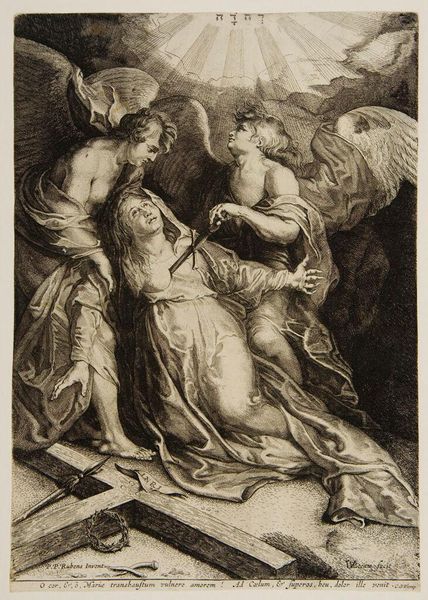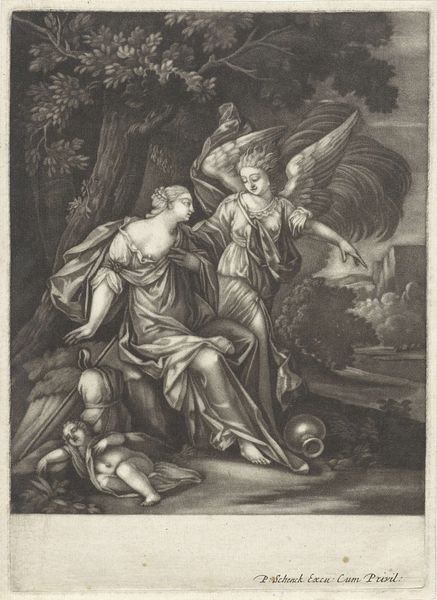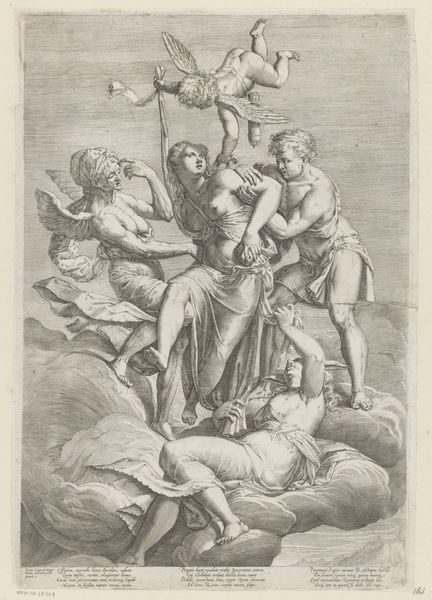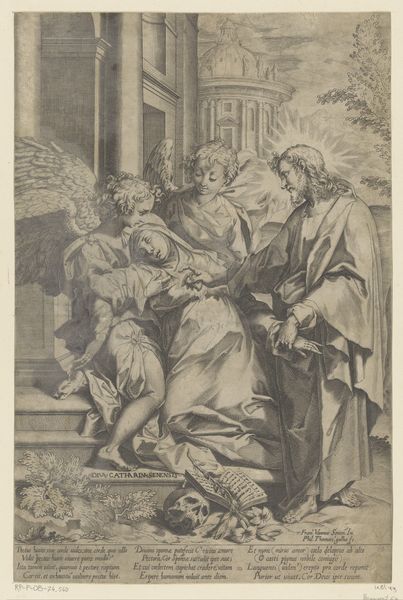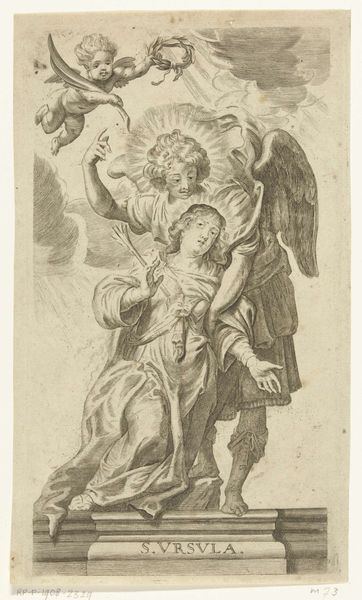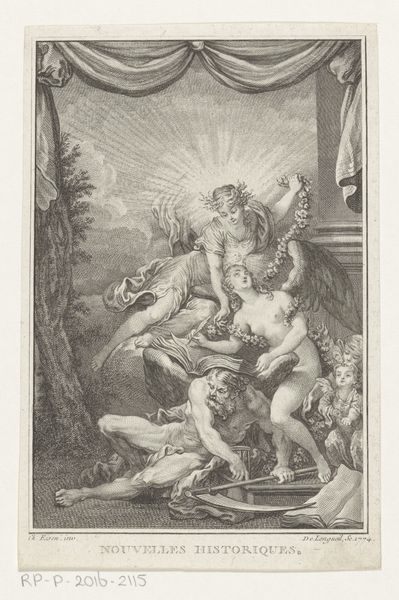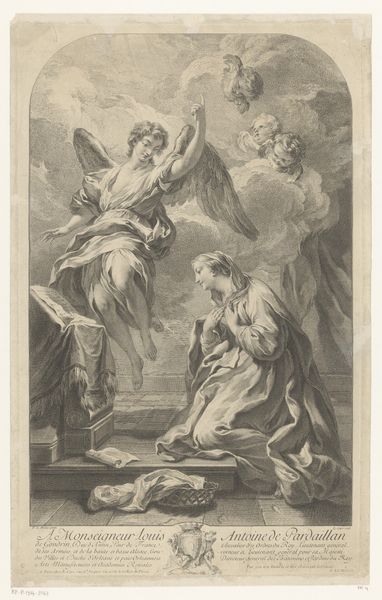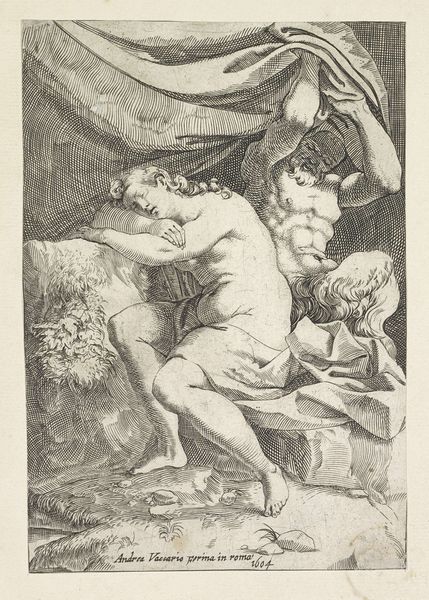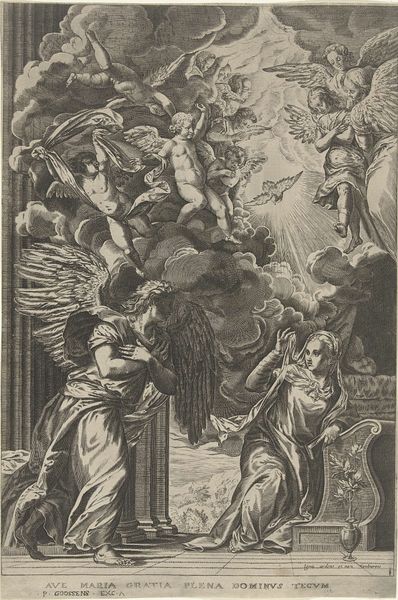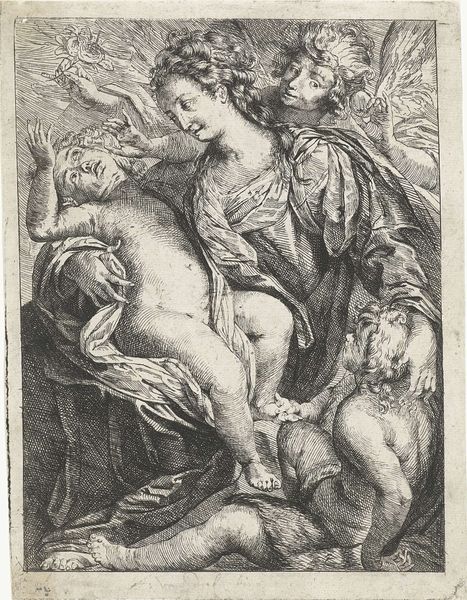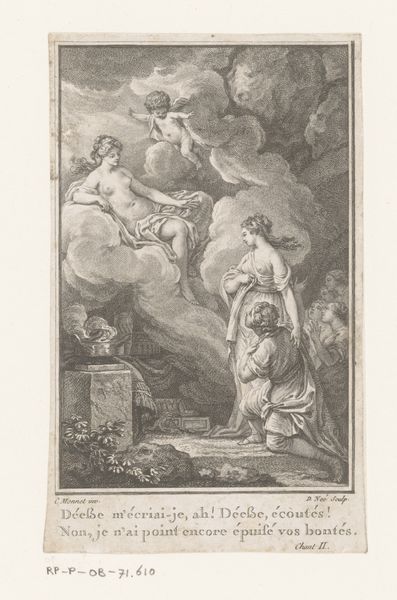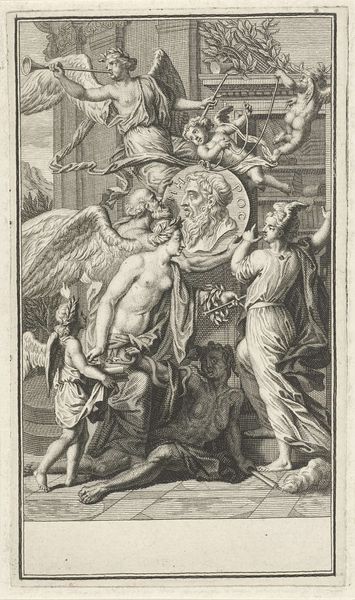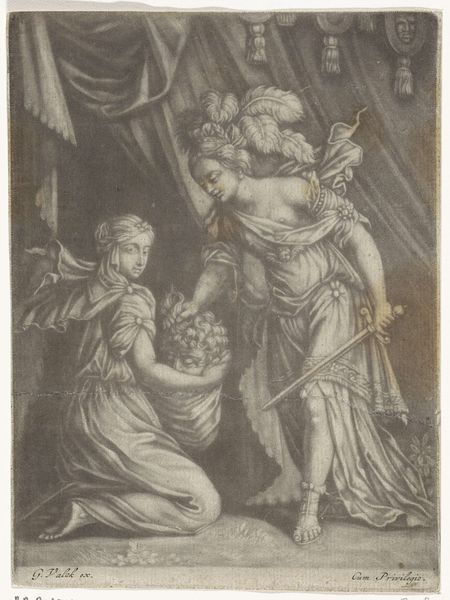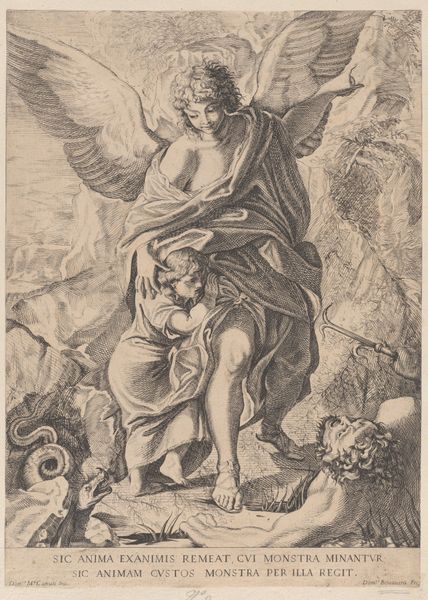
engraving
#
baroque
#
old engraving style
#
charcoal drawing
#
figuration
#
limited contrast and shading
#
history-painting
#
engraving
Dimensions: height 301 mm, width 208 mm
Copyright: Rijks Museum: Open Domain
Willem van der Leeuw created this print of the “Mourning Mary” with etching, sometime in the 17th century. The process involves covering a metal plate with a waxy, acid-resistant coating, then scratching into that surface with a pointed tool. The plate is then submerged in acid, which bites into the exposed metal, creating recessed lines. These are inked, and the plate is pressed against paper. This process allows for the creation of multiples, bringing images into wider circulation than painting or sculpture might allow. The texture of the image is entirely dependent on the artist's confident handling of the etching tool, the depth of the acid bite, and the controlled application of ink. The dramatic scene of Mary fainting is rendered entirely in this vocabulary of marks, a reminder of the skilled hand required to make these images which were central to religious devotion and cultural exchange. So we can appreciate the artistry of this image and the labor involved in its production, and not just the image it conveys.
Comments
No comments
Be the first to comment and join the conversation on the ultimate creative platform.
